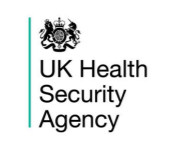Latest UK Data Shows Covid Infection RATE Among the Triple Jabbed (Boosted) Is HIGHER And RISING FASTER Than The Unvaccinated Across ALMOST EVERY Age Group
20 January 2022
Executive summary
Four coronavirus (COVID-19) vaccines have now been approved for use in the UK. Rigorous
clinical trials have been undertaken to understand the immune response, safety profile and
efficacy of these vaccines as part of the regulatory process. Ongoing monitoring of the vaccines
as they are rolled out in the population is important to continually ensure that clinical and public health guidance on the vaccination program is built upon the best available evidence. UK Health Security Agency (UKHSA), formerly Public Health England (PHE), works closely with the Medicines and Healthcare Regulatory Agency (MHRA), NHS England, and other government, devolved administration and academic partners to monitor the COVID-19 vaccination program. Details of the vaccine surveillance strategy are set on the page COVID-19: vaccine surveillance strategy (1). As with all vaccines, the safety of COVID-19 vaccines is continuously being monitored by the MHRA. They conclude that overall, the benefits of COVID-19 vaccines outweigh any potential risks (2).
Vaccine effectiveness
Several studies of vaccine effectiveness have been conducted in the UK against different
COVID-19 variants. Vaccine effectiveness against symptomatic disease with the Omicron
variant is substantially lower than against the Delta variant, with rapid waning. However,
protection against hospitalisation remains high, particularly after 3 doses.
Population impact
The impact of the vaccination program on the population is assessed by taking into account
vaccine coverage, evidence on vaccine effectiveness and the latest COVID-19 disease surveillance indicators. Vaccine coverage tells us about the proportion of the population that have received 1, 2 and 3 doses of COVID-19 vaccines. By 16 January 2022, the overall vaccine uptake in England for dose 1 was 68.9% and for dose 2 was 63.6%. Overall vaccine uptake in England in people with at least 3 doses was 48.4%. In line with the program rollout, coverage is highest in the oldest age groups.
We present data on COVID-19 cases, hospitalizations and deaths by vaccination status. These
raw data should not be used to estimate vaccine effectiveness as the data does not take into account inherent biases present such as differences in risk, behavior and testing in the
vaccinated and unvaccinated populations. Vaccine effectiveness is measured in other ways as
detailed in the ‘Vaccine Effectiveness’ section. Based on antibody testing of blood donors, 98.7% of the adult population now have antibodies to COVID-19 from either infection or vaccination compared to 24.1% that have antibodies from infection alone.
COVID-19 vaccine surveillance report – week 3- 4
Vaccine effectiveness
Large clinical trials have been undertaken for each of the COVID-19 vaccines approved in the
UK which found that they are highly efficacious at preventing symptomatic disease in the
populations that were studied. The clinical trials have been designed to be able to assess the
efficacy of the vaccine against laboratory confirmed symptomatic disease with a relatively short follow up period so that effective vaccines can be introduced as rapidly as possible. Post implementation real world vaccine effectiveness studies are needed to understand vaccine effectiveness against different outcomes (such as severe disease and onwards transmission), effectiveness in different subgroups of the population and against different variants as well as to understand the duration of protection. Vaccine effectiveness is estimated by comparing rates of disease in vaccinated individuals to rates in unvaccinated individuals.
Below we outline the latest real-world evidence on vaccine effectiveness from studies in UK
populations. Where available we focus on data related to the Omicron variant which is currently dominant in the UK. The findings are also summarized in Table 2.
Effectiveness against symptomatic disease
Vaccine effectiveness against symptomatic COVID-19 has been assessed in England based on
community testing data linked to vaccination data from the National Immunisation Management
System (NIMS), cohort studies such as the COVID Infection Survey and GP electronic health
record data. After 2 doses of AstraZeneca vaccine, vaccine effectiveness against the Omicron
variant starts at 45 to 50% then drops to almost no effect from 20 weeks after the second dose.
With 2 doses of Pfizer or Moderna effectiveness dropped from around 65 to 70% down to
around 10% by 20 weeks after the 2nd dose. 2 to 4 weeks after a booster dose of either the
Pfizer or Moderna vaccine, effectiveness ranges from around 65 to 75%, dropping to 55 to 65%
at 5 to 9 weeks and 45 to 50% from 10+ weeks after the booster. Vaccine effectiveness
estimates for the booster dose are very similar, irrespective of the primary course received (3).
Vaccine effectiveness is generally slightly higher in younger compared to older age groups.
SEE FULL REPORT by selecting link below:
